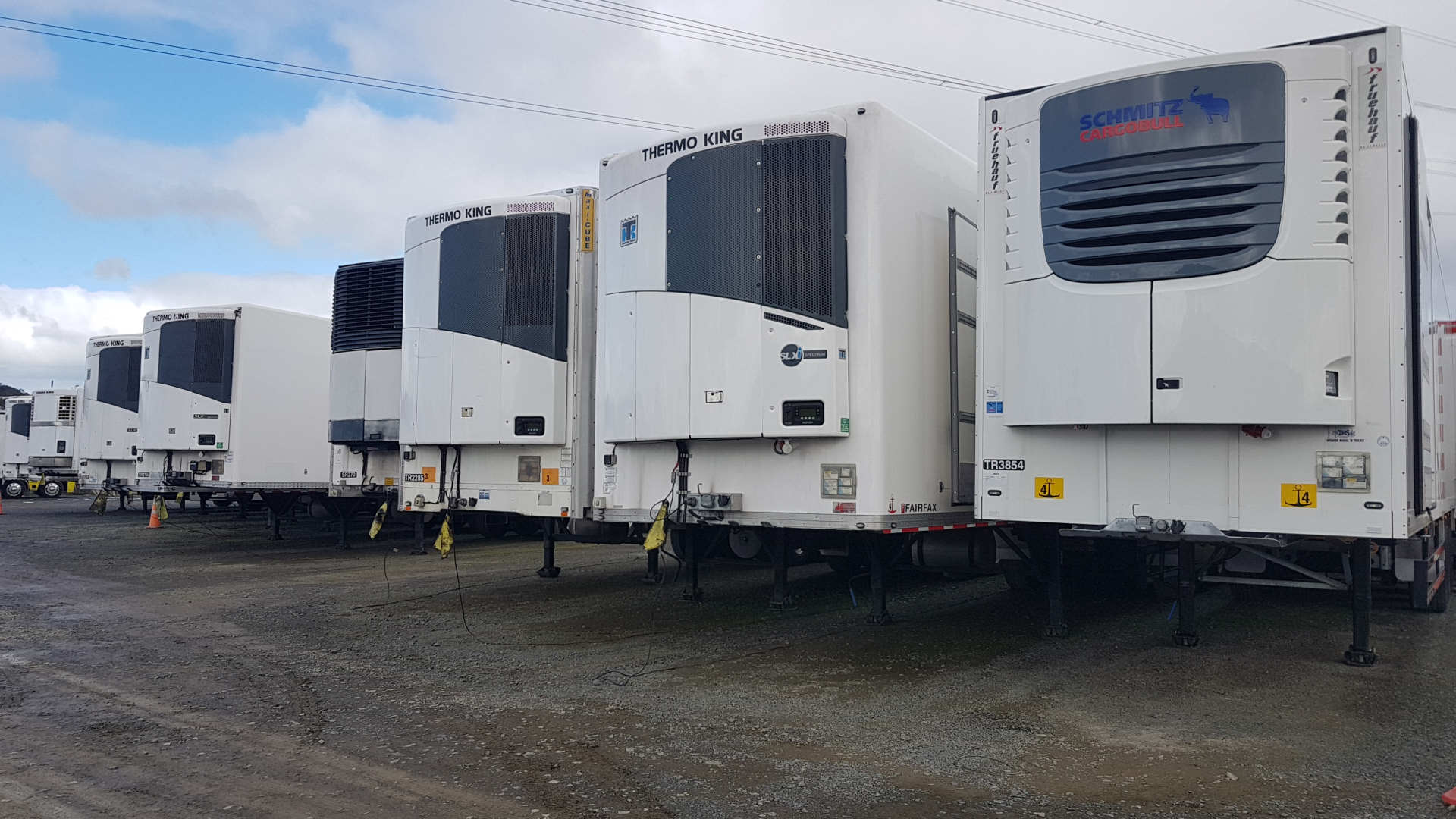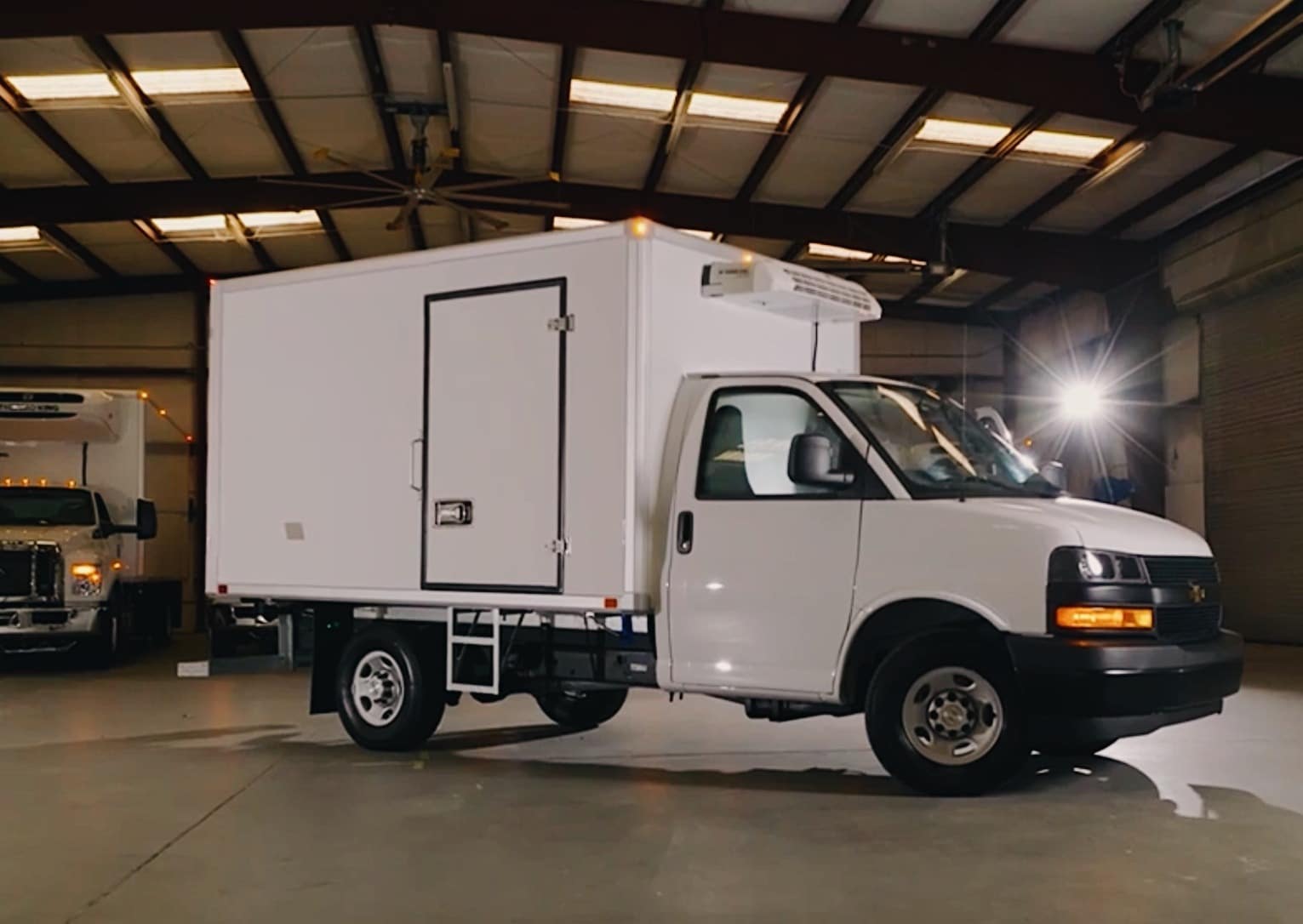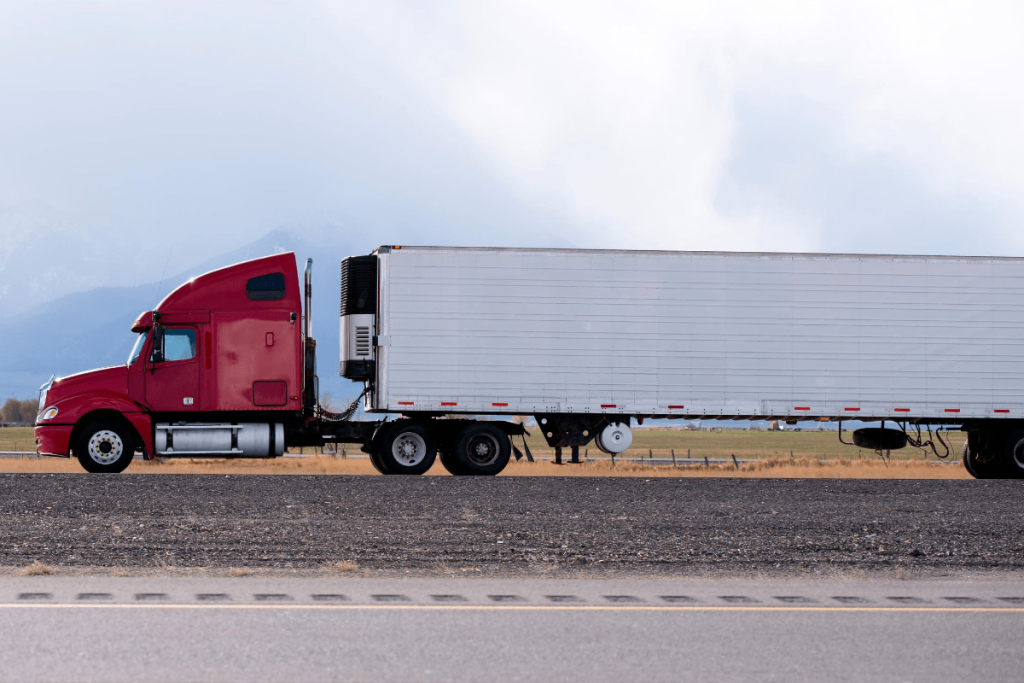Advanced Thermo King Truck Refrigeration Units for Trustworthy Distribution
Wiki Article
Leading Advancements in Transportation Refrigeration: Enhancing Effectiveness and Safety
The landscape of transport refrigeration is going through significant change, driven by developments targeted at boosting both performance and safety and security. Trick developments such as wise temperature monitoring systems, environmentally friendly cooling agents, and automated course optimization are critical in addressing the industry's challenges. These modern technologies not just guarantee the integrity of temperature-sensitive products but also add to sustainability initiatives. As these developments proceed to progress, it is important to discover their effects on functional methods and regulative compliance, prompting a more detailed evaluation of just how they reshape the future of transportation refrigeration.Smart Temperature Level Keeping Track Of Equipments
In the realm of transportation refrigeration, smart temperature level surveillance systems have become a crucial technology for making sure the integrity of temperature-sensitive goods. These sophisticated systems utilize Internet of Things (IoT) modern technology to offer real-time data on temperature fluctuations, allowing operators to preserve optimum conditions throughout the supply chain. By constantly tracking the temperature level of refrigerated containers and automobiles, business can promptly identify variances that may compromise item top quality.
Additionally, clever surveillance systems commonly include automated notifies and notifications, allowing stakeholders to react immediately to any kind of possible concerns. This proactive method not just minimizes the risk of putridity but also improves conformity with regulatory requirements controling food safety and pharmaceutical transportation.
The assimilation of data analytics within these systems likewise promotes predictive upkeep, aiding operators to visualize prospective tools failures before they happen. This capacity lowers downtime and optimizes operational effectiveness, inevitably resulting in set you back financial savings.
Eco-Friendly Refrigerants
Smart temperature level monitoring systems play an essential duty in maintaining item high quality, but the effectiveness of transportation refrigeration additionally depends upon the selection of cooling agents utilized. As ecological issues increase, the shift towards environmentally friendly cooling agents has actually come to be necessary. Typical cooling agents, such as hydrofluorocarbons (HFCs), are infamous for their high Global Warming Possible (GWP), contributing substantially to climate change. In contrast, arising options like hydrocarbon-based cooling agents and hydrofluoroolefins (HFOs) present reduced GWP options, offering both performance and sustainability.
These environment-friendly refrigerants not just reduce environmental impact however likewise line up with worldwide laws intended at terminating hazardous compounds. Their adoption can result in improved energy efficiency, ultimately decreasing operating expenses for transport refrigeration systems. Furthermore, the use of natural refrigerants, such as ammonia and carbon dioxide, has gotten grip because of their outstanding thermodynamic residential or commercial properties and lower environmental impact.
Buying environmentally friendly refrigerants is not simply a regulatory conformity action; it stands for a calculated choice that improves brand reputation and fosters customer commitment. thermo king transport refrigeration. By prioritizing lasting methods, companies can contribute to a greener future while ensuring the honesty of moved items
Advanced Insulation Products
Using sophisticated insulation materials is vital for optimizing transportation refrigeration systems, as they significantly boost power efficiency and maintain consistent temperature level control. Conventional insulation techniques commonly drop short in preventing thermal transfer, bring about raised power usage and changing temperatures within chilled compartments.Emerging products such as vacuum insulated panels (VIPs) and aerogels use exceptional thermal resistance, allowing for thinner accounts without jeopardizing efficiency. VIPs, as an example, utilize a vacuum layer to lessen convective and conductive heat transfer, making them suitable for space-constrained applications. Aerogels, known for their lightweight and permeable framework, give remarkable insulation while substantially decreasing general my website system weight.
In addition, incorporating stage modification materials (PCMs) into insulation systems can better stabilize temperatures during transit. These materials absorb and release thermal energy, effectively buffering against outside temperature variations.
The assimilation of these advanced insulation materials not only lowers the functional costs associated with energy usage but additionally extends the service life of temperature-sensitive products. As the transport refrigeration market proceeds to develop, the fostering of cutting-edge insulation modern technologies will certainly be pivotal in enhancing both efficiency and safety in refrigerated transportation.
Automated Path Optimization
The efficiency of transportation refrigeration systems is significantly boosted with automated course optimization, which leverages real-time information and advanced formulas to determine one of the most efficient paths for distribution. By analyzing numerous factors such as web traffic patterns, weather, and shipment windows, these systems can substantially minimize traveling time and fuel consumption.Automated course optimization lessens human mistake and subjective decision-making, which can lead to ineffectiveness. This innovation enables fleet supervisors to assign sources better, guaranteeing that cooled products preserve their required temperature level throughout the journey. By optimizing courses, business can also improve customer satisfaction with timely distributions.
Furthermore, automated systems can adjust to unexpected circumstances, such as roadway closures or sudden website traffic spikes, enabling dynamic rerouting. This versatility not only secures the integrity of temperature-sensitive items yet also adds to overall functional efficiency.
Applying automated route optimization can cause considerable price savings while decreasing the carbon impact associated with transport. As companies significantly prioritize sustainability, this technology sticks out as an important component in contemporary transportation refrigeration, lining up operational objectives with ecological obligation. Eventually, automated route optimization represents a substantial advancement in the pursuit for effectiveness and security in transport refrigeration.

Real-Time Information Analytics
Automated course optimization substantially gain from the combination of real-time information analytics, which offers essential insights into the efficiency of transportation refrigeration systems. By utilizing real-time data, transportation operators can keep track of temperature variations and equipment efficiency, ensuring that disposable products are maintained within required parameters throughout transit. This positive technique not only boosts the quality of the delivered items yet also mitigates the threat of perishing and loss.
In enhancement to improving effectiveness, real-time analytics improves safety by ensuring conformity with regulative requirements for temperature control. This not just secures public health but additionally fortifies a company's online reputation - reefer trucks thermo king. As the transportation refrigeration visit this site right here industry evolves, the assimilation of real-time information analytics emerges as a keystone for driving advancement, sustainability, and operational quality
Conclusion
In conclusion, the innovations in transport refrigeration significantly boost both effectiveness and safety within the sector. Jointly, these innovations represent a critical evolution in transport refrigeration, ensuring use this link conformity with governing requirements and promoting a greener future.The landscape of transport refrigeration is going through considerable transformation, driven by developments aimed at improving both effectiveness and security.Smart temperature monitoring systems play an important function in maintaining product quality, but the performance of transportation refrigeration additionally pivots on the option of refrigerants used. Their adoption can lead to boosted power performance, inevitably reducing operating costs for transport refrigeration systems. Ultimately, automated route optimization represents a considerable improvement in the pursuit for performance and safety in transport refrigeration.
In conclusion, the developments in transport refrigeration considerably improve both performance and safety and security within the sector.
Report this wiki page